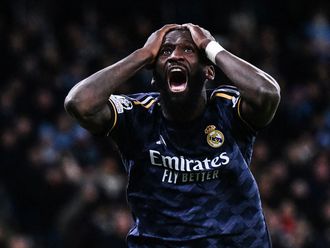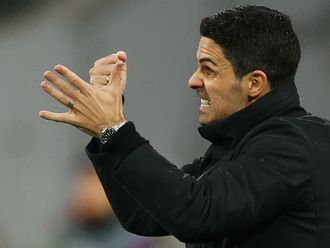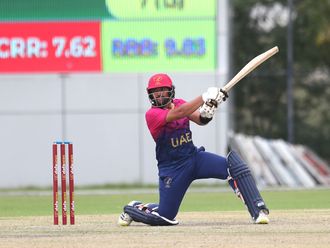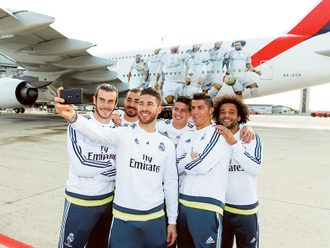SPAIN
While Spain may not possess the allure of four years ago – that dissipated when they were stunningly knocked out of the 2014 World Cup at the group stage – their vast experience, winning instincts and all-round class mean they remain a considerable force to be reckoned with.
Iker Casillas, Gerard Pique, Sergio Ramos, Andres Iniesta and Sergio Busquets have established themselves as legends of the game after multiple triumphs for club and country, including two successive European Championship wins and one world title, and form a formidable spine.
Younger members of the squad – the gifted midfielders Koke and Thiago Alcantara and the winger, Lucas Vazquez – are also accustomed to winning with their club sides and have added youthful exuberance to Spain’s battle-hardened core.
Stodgy friendly draws in March against Italy and Romania have aroused cause for concern, however, and many teams have ostensibly worked out how to counteract the tiki-taka passing tactics the Spanish employ.
Question marks remain over their strike force, too, with coach Vicente del Bosque controversially omitting Diego Costa and Fernando Torres from his squad and including the 35-year-old Aritz Aduriz.
The Juventus striker, Alvaro Morata, is expected to lead the line for La Roja, but he has scored only 12 goals this season for his club side and, at the time of writing, just one for Spain.
Nolito, the former Barcelona B and current Celta Vigo striker, could be a decent alternative from the bench, though – he scored twice in a recent 3-1 friendly win over Bosnia.
With such enviable strength in depth, then, Spain should reach a fourth final in their 10th appearance at the tournament, where a repeat of the 2008 final with fellow joint three-time record winners Germany is a strong possibility.
Key man: Andres Iniesta
Coach: Vicente del Bosque
Fifa ranking: 6
CROATIA
The memories of Croatia’s joyous debut at the European Championship in 1996, when they lost narrowly to the eventual champions Germany in the quarter-finals, remain indelible in the minds of football fans of a certain age.
Davor Suker’s audacious chip with the outside of his left boot in the Croats’ 3-0 group-stage rout of the defending champions Denmark remains one of the greatest goals in the tournament’s history.
Twenty years on, Ante Cacic’s men undeniably have the quality to emulate the last-eight heroics of Suker and co in their fifth appearance at the finals. In midfield, they are particularly strong, with Luka Modric and Ivan Rakitic both cultured performers with experience of winning major titles with their respective club sides, Real Madrid and Barcelona.
The dynamic duo of Ivan Perisic and Marcelo Brozovic supplement the silky skills of Modric and Rakitic with their ability to break forward with pace.
Perisic, in particular, is in superb form, scoring six times in the qualifiers and once against Israel in a recent friendly.
The bustling frontman Mario Mandzukic, who will be the solitary striker in a 4-2-3-1 formation, is a handful for any defence on his day, meanwhile.
An unbeaten record since September, including seven wins out of 10 in the qualifiers to finish second in their group behind Italy, offers further cause for optimism about Croatia’s chances.
It is defensively, however, where Croatia’s weakness may lie. Dejan Lovren, the Liverpool centre-back, surprisingly did not make Cacic’s squad, while the veteran pair of Dario Srna and Vedran Corluka are both past their best.
A victory in the opening game against Turkey would provide vital momentum for Croatia to go on and attempt to make memories as enduring as Suker’s sumptuous strike 20 years ago.
Key man: Luka Modric
Coach: Ante Cacic
Fifa ranking: 23
TURKEY
Turkey left it late to reach Euro 2016, after a disastrous start saw them pick up just one point from three games, but then they are accustomed to coming back when all hope seems to have evaporated. In their last European Championship appearance eight years ago, they defeated Switzerland at the death before overcoming a 2-0 deficit against Czech Republic to qualify for the last eight and scoring a 122nd-minute equaliser against Croatia en route to an eventual last-four place.
If Turkey can start better this time around, then they could emerge as one of the surprise packages of the tournament.
Arda Turan may have disappointed at Barcelona after moving from Atletico Madrid, but he remains a fine attacking midfielder, while Bayern Leverkusen youngster Hakan Calhanoglu has been compared to German star Mesut Ozil and is a set-piece specialist.
Meanwhile, Oguzhan Ozyakup, the former Arsenal player now with Turkish champions Besiktas, has become increasingly important to his country and fits neatly into a technically brilliant midfield with his vision and passing range.
Turkey’s Achilles’ heel, however, is a lack of firepower in attack; Fatih Terim’s side do not have a top-class centre-forward and they scored just 14 times in 10 qualifying games.
But Turkey remain full of confidence, having gone 13 games unbeaten before a narrow friendly defeat to England in May, and will feel they can be highly competitive in their fourth appearance at the European finals.
They are also under the tutelage of a highly experienced manager in the 62-year-old Terim, who is in his third spell in charge of the national team, with his first beginning way back in 1993.
Terim is known as ‘The Emperor’ and will be hopeful of surveying some regal performances in France to match his grandiose moniker.
Key player: Arda Turan
Coach: Fatih Terim
Fifa ranking: 13
CZECH REPUBLIC
The Czech Republic have a notable track record at the European Championships, having been runners-up in 1996 and losing to the eventual champions Greece in the 2004 semi-finals, while in their previous incarnation as Czechoslovakia they won the 1976 tournament.
A repeat of those feats is highly improbable this time around, however, as Pavel Vrba has few stars and relies more on team unity and hard work.
Their most recognisable player is their world-class goalkeeper Petr Cech, who is a totemic figure in an experienced backline.
Then there is the enigma that is Tomas Rosicky, the former captain of the squad who has been included despite playing only 19 minutes for Arsenal this season after being beset by injury.
If fit, the 35-year-old, who played at the 2000 tournament, could have a talismanic influence for Vrba, having scored 22 times in 100 appearances for his country.
Elsewhere, though, there is nobody to compare to Vladimir Smicer, Karel Poborsky, Patrick Berger et al, who performed with distinction for the Czechs 20 years ago in England, although the Sparta Prague midfielder Borek Dockal could make a name for himself.
He scored four goals as Vrba’s men topped their qualifying group, but this exposes another weakness of the squad – a shortage of quality up front. Bursaspor’s Tomas Necid is expected to lead the line in France, but he scored only once in qualifying.
The Czechs’ hopes of progression will rest on keeping it tight at the other end, therefore, and they will be counting heavily on their illustrious shot-stopper Cech in this regard.
Pavel Kaderabek, an attacking right-back with a good physical presence, will be another key component of the rearguard of Group D’s underdogs, who surely cannot emulate their country’s past masters.
Key player: Petr Cech
Coach: Pavel Vrba
Fifa ranking: 29











